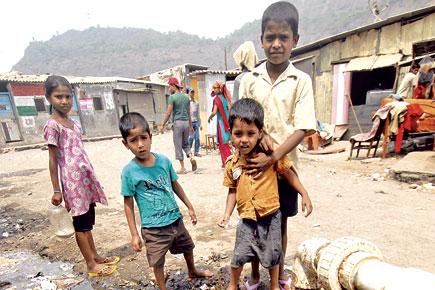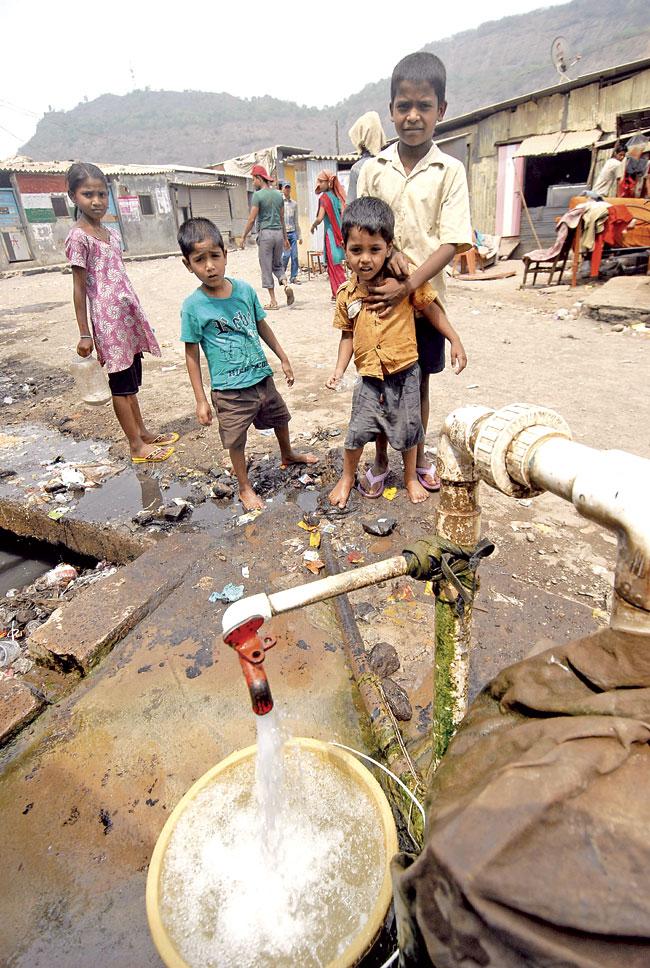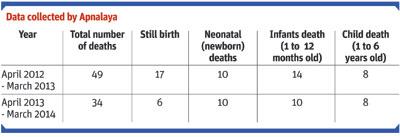Study conducted in eight areas of Shivaji Nagar reveals that between April 2012 and March 2014, 83 children between the ages of 0-6 yrs have died, mainly due to malnutrition

With a population of close to 5.5 lakh people living in Shivaji Nagar, next to one of the biggest dumping grounds of Mumbai, most families are forced to live in poverty. What’s more, migrating to the city seems to have taken a toll on their infants and children.

Children who are malnourished or under weight are more susceptible to diseases like diarrhoea, pneumonia and tuberculosis. File pic
ADVERTISEMENT
According to a recent study conducted in eight areas of Shivaji Nagar, in the last two years, an alarming 83 children, between the ages of 0-6 years, have died. Speaking to mid-day, Dyaneshwar Tarwade, programme head (Health) of Apnalaya, the NGO that complied the data, said, “While we were unable to pinpoint the exact reasons for these deaths, since many of them took place in their homes, the underlying cause could be malnutrition.
These kids were suffering from diseases like diarrhoea, pneumonia, tuberculosis, etc. Kids who are malnourished or under weight are more susceptible to these diseases. However, cases of stillbirths and neonatal deaths were mostly due to lack of antenatal care and inadequate medical treatment.”

Between April 2012 and March 2013, the number of deaths was 49 and from April 2013 to March 2014, 34 cases were recoded. The data was collected from Rafi Nagar, Indira Nagar, Saibaba Nagar, Chikalwadi, Padma Nagar, Shanti Nagar, Buddha Nagar and Mominpura in Shivaji Nagar. The NGO, for its part, has appointed 17 community health volunteers to council families and spread awareness about child delivery, post natal car and immunisation, among other topics.
“Our volunteers, while collecting data on child growth like height and weight, observed that many women continue to deliver babies at home and have no knowledge of what the child should be fed. Most families do not use family planning methods due to religious reasons, making it difficult for the mother to take care of five to six children,” informed Tarwade.
No apathy
Volunteers from the NGO informed mid-day that with only 135 anganwadis in Shivaji Nagar, many children are left out of the Integrated Child Development Scheme (ICDS). Around 40 posts of anganwadi assistants are currently lying vacant, under the project that was started by the government in 2010.
“What makes it even worse is that most anganwadis are set up in people’s homes where there are families staying. Therefore, there are no weighing scales or measuring tapes at these centres for them to determine the height-weight ratio of children,” said Jagdevi Bansode, a volunteer with the NGO.
Officialspeak
Despite repeated attempts to contact Indu Perdeshi, child development programme officer of ICDS, she remained unavailable for comment.
*Out of the 49 children between the ages of 0-6 years old who died, 12 of them were delivered at home in 2012-13, while the number dropped to two between 2013-14.
 Subscribe today by clicking the link and stay updated with the latest news!" Click here!
Subscribe today by clicking the link and stay updated with the latest news!" Click here!







